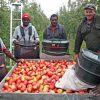Jobs in USA
Food and Beverage Servers Jobs in USA
Food and beverage servers are a foundational part of the U.S. hospitality industry. These servers are central to ensuring that restaurants, cafés, and bars operate seamlessly. They take orders, deliver meals, manage transactions, and maintain a welcoming atmosphere. Immigrants make up a significant portion of this workforce, stepping into positions that require long hours and adaptability. Food and beverage servers are critical to keeping the industry running smoothly.
For many foreign nationals, server jobs provide more than just a paycheck. They serve as an entry point into the U.S. labor market. These roles offer opportunities for skill development, financial stability, and career progression, often leading to higher-paying positions in hospitality or business ownership. Serving remains a vital stepping stone for those building a future in the United States.
Requirements for Food and Beverage Servers
Food and beverage server roles don’t require formal education, but strong customer service skills are always appreciated. These are necessary for handling guests and ensuring smooth service. Clear language and communication with customers and kitchen staff also help prevent mistakes. This means that English-speaking applicants will have a general advantage. Servers must also have physical stamina, as the job involves long hours on foot, carrying trays, and working under pressure.
Basic math skills are needed to process payments and calculate bills accurately. Flexibility is crucial since shifts often include nights, weekends, and holidays. The ability to multitask and stay organized in a fast-paced environment is also important. Teamwork plays a key role, as coordination with colleagues ensures efficiency. Many skills learned in this role can lead to career advancement in hospitality or business.
Visa Options for Food and Beverage Servers In the U.S.
Many food service jobs do not qualify for work visa consideration. This is because they are mostly considered a lower-tier job category. However, Food and beverage server positions can be eligible for visa sponsorship, especially in areas experiencing labor shortages.
The main visa options include:
- The H-2B Visa, which is a temporary work visa for non-agricultural roles, allows foreign workers to stay in the U.S. for up to 10 months. Restaurants, hotels, and resorts commonly use it. In some cases, workers may receive extensions.
- There is also the J-1 Visa, a cultural exchange visa that permits foreign nationals to work in hospitality roles for up to 12 months. Restaurants and resorts often use this program to hire international staff.
- EB-3 Visa (Other Workers) – Some employers sponsor foreign workers for permanent residency under the EB-3 visa category, particularly in areas struggling to fill restaurant and hospitality jobs.
- The TN Visa is available to Canadian and Mexican citizens under the USMCA agreement. Food and beverage server roles may not always qualify, but some supervisory or specialized positions in the industry may meet the requirements.
Some undocumented workers may also qualify for immigration relief under programs like Deferred Action for Childhood Arrivals (DACA). This provides work authorization for eligible individuals. Additionally, family-sponsored green cards can offer legal pathways to residency for those with qualifying relatives in the U.S.
Benefits of Food and Beverage Serving In the U.S.
1. Low Barrier of Entry
Food and beverage server jobs offer easy entry into the U.S. workforce, as they don’t require higher education or fluency in English. Employers value a strong work ethic over formal qualifications and often provide hands-on training. This makes it an ideal job for immigrants or those new to the workforce. Many restaurants also have bilingual staff, creating an environment where non-native speakers can comfortably learn and grow.
2. Consistent Job Demand and Availability
The restaurant industry is one of the largest employers in the U.S., with over 15 million workers and a constant need for staff. High employee turnover and expanding hospitality businesses create frequent job openings. Major cities, tourist destinations, and seasonal hotspots also always require servers to meet demand. This stability makes serving a reliable job option, especially for those looking to enter the workforce quickly. With new restaurants opening regularly, opportunities for employment remain strong.
3. Potential for High Earnings Through Tips
Base pay for servers is often low, but tips significantly boost overall earnings, especially in high-traffic or upscale restaurants. Skilled servers who provide excellent service can earn double or even triple their hourly wage through gratuities. In busy cities or popular dining areas, it’s not uncommon for experienced servers to take home substantial daily earnings. This performance-based income model makes serving financially rewarding for many.
4. Career Advancement Opportunities
Many restaurant managers, bartenders, and even business owners started as servers and worked their way up. The role provides hands-on experience in customer service, team coordination, and restaurant operations. This builds a strong foundation for career growth. Dedicated servers can even move into supervisory roles, gaining leadership experience that translates to higher-paying jobs. Bartending, catering management, and even corporate hospitality positions often stem from serving experience.
5. Valuable Networking & Work Experience
Serving is also an opportunity to build meaningful professional connections. Restaurants attract a diverse range of customers, including business owners, professionals, and influential figures. Networking with regular customers, managers, and colleagues can lead to unexpected career opportunities. Beyond connections, servers gain valuable transferable skills in communication, multitasking, and problem-solving. These skills apply to various industries, making serving a strong starting point for future job prospects.
Salary Expectations for Food and Beverage Servers
Earnings for food and beverage servers can vary widely depending on factors such as geographic location, level of experience, and the type of establishment where they work. The federal minimum wage for tipped employees is just $2.13 per hour, but customer gratuities (tips) supplement this base pay. In casual dining restaurants, total hourly earnings, including tips, typically range from $15 to $25 per hour.
However, those working in high-end restaurants, luxury hotels, or busy metropolitan areas can earn substantially more. Their haul sometimes exceeds $40 per hour on busy nights. Annual salaries usually fall between $25,000 and $40,000, but those who work in premium fine-dining establishments or exclusive venues can surpass this range.
Common Challenges In Applying As A Food and Beverage Server
Applying for any food service job in the U.S. presents some challenges. This is especially true for immigrants who must navigate work visa requirements, service licensing processes, and competition. However, understanding these challenges can help applicants prepare effectively and improve their chances.
Seasonal Work and Job Instability
Many food and beverage server jobs are tied to seasonal demand, especially in tourist-heavy areas. Restaurants in beach towns, ski resorts, and vacation hotspots may hire extensively during peak seasons but cut back staff during slower months. This can make income unpredictable, forcing workers to find temporary jobs elsewhere during off-seasons. Those relying solely on server income must prepare for fluctuations and consider saving during peak months to cover gaps.
Physically Demanding Work
Serving requires long hours on your feet, often walking several miles during a single shift. Lifting heavy trays, carrying multiple plates, and constantly moving between tables and the kitchen can take a toll on the body. The fast-paced nature of the job, especially during peak hours, adds to the physical strain. Over time, repetitive tasks can lead to back pain, sore joints, or even injuries. Unlike desk jobs, there are few opportunities to sit and rest, making endurance essential.
Low Base Wages and Income Uncertainty
In many states, the base wage for tipped workers is significantly lower than the standard minimum wage. Servers depend on tips to make up the difference, but slow shifts, bad weather, or economic downturns can drastically reduce earnings. Unlike salaried jobs, income fluctuates daily, making budgeting difficult. While some high-end restaurants offer lucrative earning potential, servers in casual or low-traffic establishments may struggle to make a living wage.
Visa Sponsorship Limitations
One of the biggest obstacles for immigrant food and beverage servers is securing long-term visa sponsorship. Many entry-level food service jobs, such as serving, cooking and cashiering positions, are considered low-skilled labor. While the H-2B visa allows seasonal temp work, it does not provide a pathway to a green card. Without a clear immigration pathway, many of these workers must explore alternative routes, such as family sponsorship, asylum, or the Diversity Visa Lottery.
Limited Legal Protections and Workplace Challenges
Many servers lack benefits such as health insurance, paid time off, or job security. Some restaurants have unpredictable scheduling practices, leading to last-minute shift changes or unpaid hours spent waiting for customers. In extreme cases, wage theft can occur, with employers failing to pay workers their full tips or overtime. Additionally, workplace harassment from customers or coworkers is a serious issue in the industry.
How To Apply for Food and Beverage Server Jobs
A key step is to search and apply for food and beverage server jobs on reputable job platforms. Many restaurants, cafés, bars, and catering companies specify visa sponsorship in their job postings, making it easier to filter for suitable opportunities. Networking with industry professionals, attending hospitality job fairs, and obtaining certifications in food safety or bartending can improve job prospects. Major restaurant chains such as Olive Garden, McDonald’s, Starbucks, Cheesecake Factory, and Ruth’s Chris Steak House also frequently hire immigrants. They offer structured training programs and career advancement opportunities for long-term employees.
Those with entrepreneurial aspirations can explore opening their restaurants, managing catering businesses, or starting food service consulting firms.

















